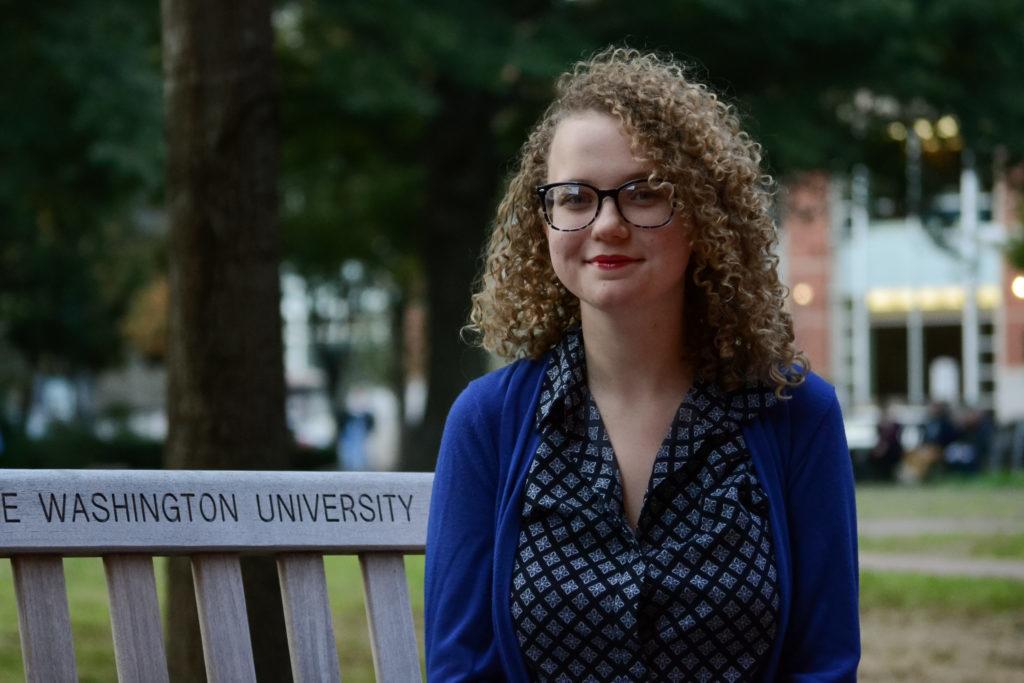The Association of Queer Women and Allies is planning to host the first-ever LGBTQ leadership conference at GW this spring – with the help of student donations.
The conference will bring together District high school LGBTQ organizations with local universities in an effort to discuss issues relevant to the community and develop professional skills, according to their fundraising page. Leaders of the organization said the conference will help build connections and provide resources for students – both in high school and college – that are part of the D.C. LGBTQ community.
AQWA, which represents students with various identities across the LBGTQ community, has reached out to more than 20 high school LGBTQ clubs in D.C. to send group members to club meetings and build friendships, Tara Fitzmartin, AQWA’s president, said.
Fitzmartin said the group has grown from 10 active members in 2014 to more than 30 now, an increase that inspired her to organize a larger event for D.C.’s LGBTQ community.
“Our goal is to say to high school students, and to fellow university students, ‘look, we’re here, we have these resources, and we are here if you need any help,’” Fitzmartin said. “AQWA was created to make a space for the underrepresented in our community.”
AQWA is fundraising for the event through Colonial Crowdfunding, a GW-sponsored program introduced in 2015 that allows student groups to raise money online for specific projects. Their campaign, one of four projects featured on the website this semester, has raised $205 of the $4,000 goal to cover food, equipment rentals, event materials and speaker fees for the conference.
The group plans to host workshops during the event focused on organizational and professional development – like social media and fundraising – as well as host community-building activities. AQWA is aiming to have 150 attendees at the conference, she said.
“There’s an amazing, vibrant queer community here in D.C.,” she said. “We want to make sure that every member of the queer community here can tap into it and get all the help and support and resources and guidance that they need to reach their potential.”
The group hasn’t yet settled on a tentative date or location for the conference.
Juliana Kogan, the vice president of AQWA, said the group decided to use Colonial Crowdfunding because it would give them the ability to spread their message and have control of how much money they wanted to raise instead of letting the Student Association decide how much they would be allocated.
The SA finance committee doles out funding to student organizations that request money for events through co-sponsorships over the course of the year.
“Negotiating with the SA would be a more complicated process,” Kogan said. “We would not be guaranteed the level of financial support that something like Colonial Crowdfunding could.”
Emma Yackso, a 2012 GW graduate and the director of youth programs services at Side By Side, an organization that sponsors LGBTQ youth programming and support groups in Virginia, said it would be “huge” for high school students to be able to attend an event where they see themselves represented in the speakers.
“They’re able to be somewhere where someone’s actually talking to their issues and speaking to their identity and things that they’ve been working through,” she said.
It’s also important for young LGBTQ students to see that they can make it out of high school, where many are bullied or alienated from their peers, to pursue a future more promising than their high school situation, Yackso said.
“Being able to have that kind of possibility model of, ‘look, there’s these people and they have the same experiences, and they were able to make it out, and now look where they are,’” Yackso said. “They’re in D.C., they have all of this incredible community, they’ve been able to build chosen families or chosen friends, and they are able to participate in all these things – so that possibility model is also really important.”
Cayla Harris contributed reporting.





